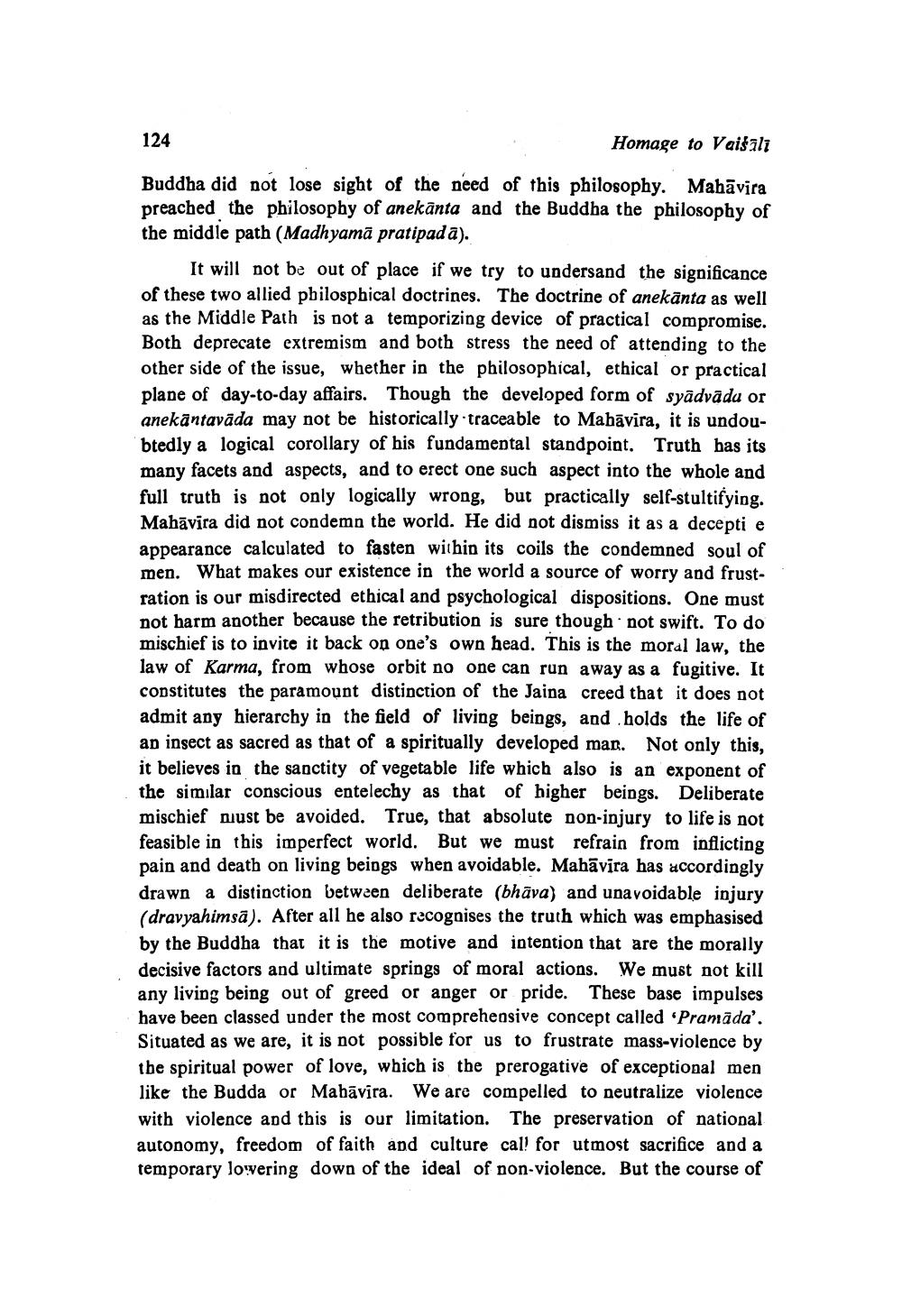________________ 124 Homage to Vaisali Buddha did not lose sight of the need of this philosophy. Mahavira preached the philosophy of anekanta and the Buddha the philosophy of the middle path (Madhyama pratipada). It will not be out of place if we try to undersand the significance of these two allied pbilosphical doctrines. The doctrine of anekanta as well as the Middle Path is not a temporizing device of practical compromise. Both deprecate extremism and both stress the need of attending to the other side of the issue, whether in the philosophical, ethical or practical plane of day-to-day affairs. Though the developed form of syadvada or anekantavada may not be historically traceable to Mabavira, it is undoubtedly a logical corollary of his fundamental standpoint. Truth has its many facets and aspects, and to erect one such aspect into the whole and full truth is not only logically wrong, but practically self-stultifying. Mahavira did not condemn the world. He did not dismiss it as a decepti e appearance calculated to fasten within its coils the condemned soul of men. What makes our existence in the world a source of worry and frustration is our misdirected ethical and psychological dispositions. One must not harm another because the retribution is sure though not swift. To do mischief is to invite it back on one's own head. This is the moral law, the law of Karma, from whose orbit no one can run away as a fugitive. It constitutes the paramount distinction of the Jaina creed that it does not admit any hierarchy in the field of living beings, and holds the life of an insect as sacred as that of a spiritually developed man. Not only this, it believes in the sanctity of vegetable life which also is an exponent of the similar conscious entelechy as that of higher beings. Deliberate mischief niust be avoided. True, that absolute non-injury to life is not feasible in this imperfect world. But we must refrain from inflicting pain and death on living beings when avoidable. Mahavira has accordingly drawn a distinction between deliberate (bhava) and unavoidable injury (dravyahimsa). After all he also recognises the truth which was emphasised by the Buddha that it is the motive and intention that are the morally decisive factors and ultimate springs of moral actions. We must not kill any living being out of greed or anger or pride. These base impulses have been classed under the most comprehensive concept called Pramada'. Situated as we are, it is not possible for us to frustrate mass-violence by the spiritual power of love, which is the prerogative of exceptional men like the Budda or Mabavira. We are compelled to neutralize violence with violence and this is our limitation. The preservation of national autonomy, freedom of faith and culture call for utmost sacrifice and a temporary lowering down of the ideal of non-violence. But the course of




